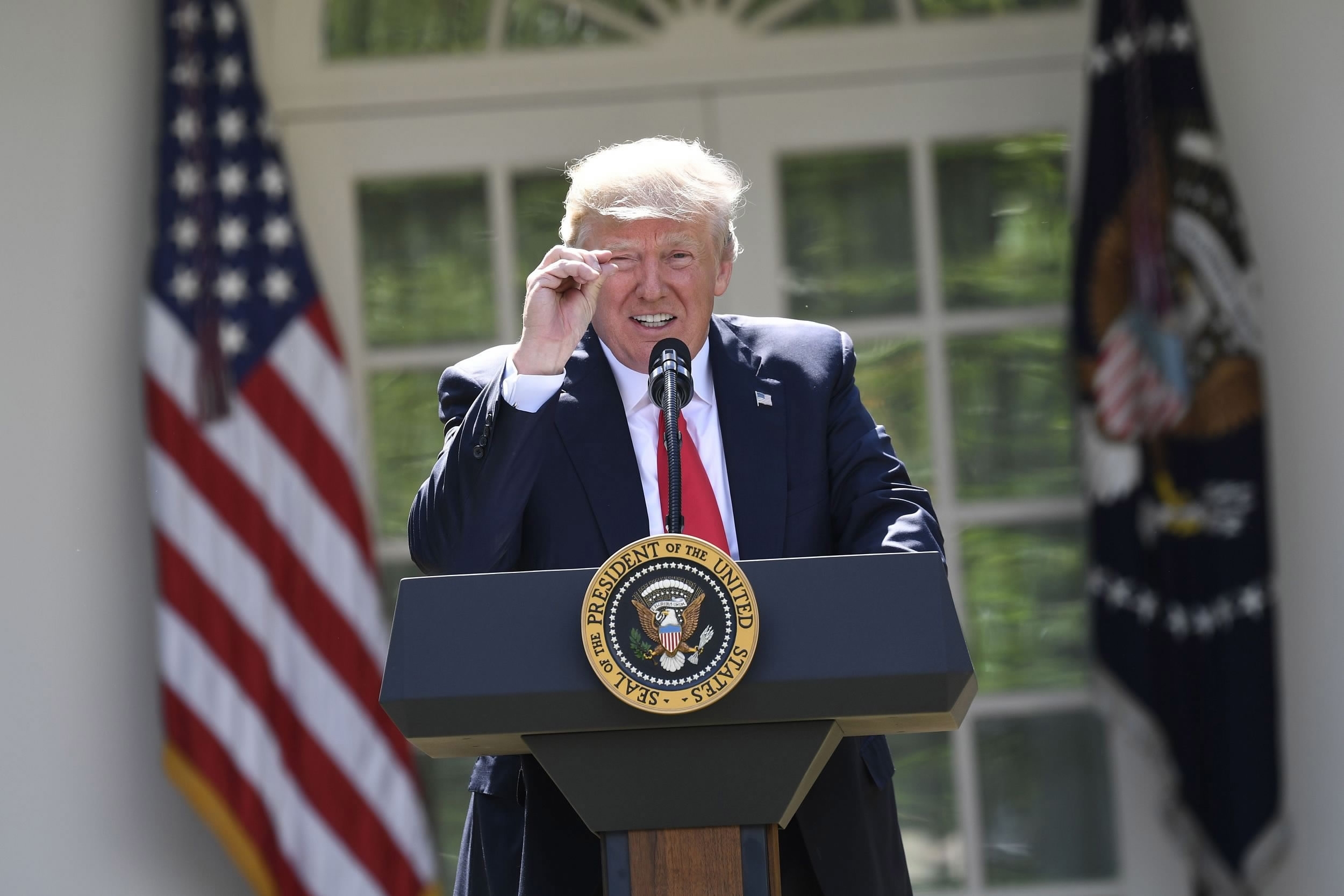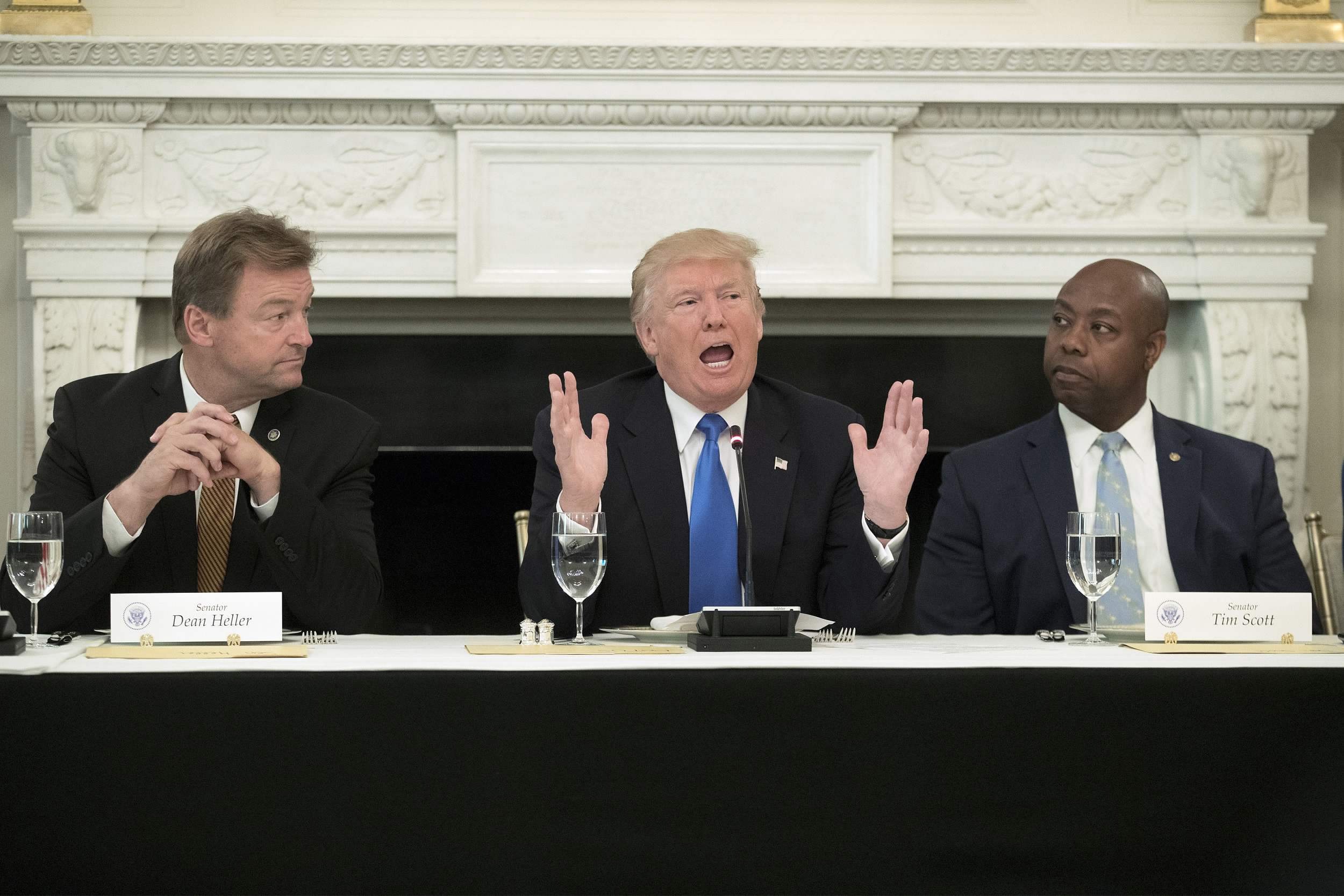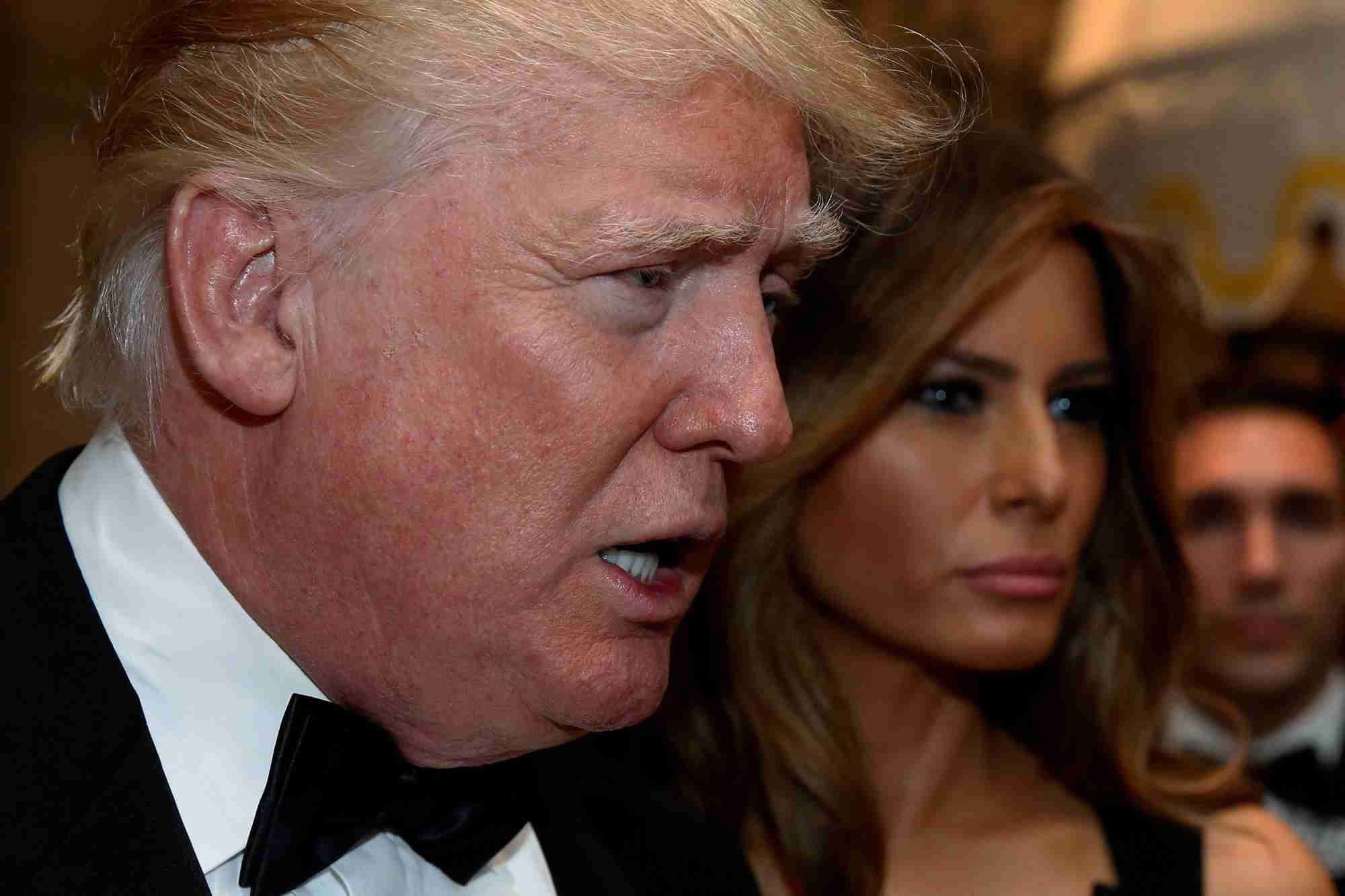
Politics
16:00, 27-Jul-2017
Opinion: How will Trump adjust Asia-Pacific policy?

By Jin Canrong in Global Times
It has been more than half a year since US President Donald Trump took office, but his diplomatic strategies have yet to take shape.
First, he has not sorted out the relationship between domestic economic development and the country's international clout. Trump hopes to reduce external distractions and focus on reviving the domestic economy. But a precondition is that the head of state needs to find a balance between attaching importance to domestic development and retaining US leadership, which Trump has failed to do.
Meanwhile, he still takes an ambiguous attitude toward globalization. Although some scholars have labeled Trump as protectionist or against globalization, this is a too simplistic conclusion. Trump does not oppose globalization, but looks for a globalization favoring the US. But this will surely annoy other countries. Trump has not found out how the US can gain more with less input during the globalization process.

US President Donald Trump announces his decision to withdraw the US from the Paris climate accord in the Rose Garden of the White House in Washington, DC on June 1, 2017. /VCG Photo
US President Donald Trump announces his decision to withdraw the US from the Paris climate accord in the Rose Garden of the White House in Washington, DC on June 1, 2017. /VCG Photo
In addition, the US has yet to make clear its global strategic focus. Traditionally, Europe, the Middle East and the Asia-Pacific region are the core of US global strategy. Since 2010, the Asia-Pacific had been particularly singled out by the previous Obama administration. But so far, the Trump administration has not sorted out how to put these regions in order.
The reason for the above-mentioned unsolved problems is that the Trump administration's diplomatic personnel are not in place yet. Those with capability and experience do not want to work for him, while his nominees cannot get confirmed by Congress.
But this situation will not last long. When the whole diplomatic team finally is in place, most of them will presumably be professional diplomats. They will have a traditional mind-set which differs from that of Trump.
If so, US diplomacy will lean toward traditional thinking - believing reviving the US economy cannot occur without US international leadership, the US must play a dominant role in globalization and sometimes has to compromise its interests, and the Asia-Pacific is still a priority in US global strategy.

US President Donald Trump (C) delivers remarks on healthcare during a lunch with members of Congress in the State Dining Room of the White House on July 19, 2017 in Washington DC. /VCG Photo
US President Donald Trump (C) delivers remarks on healthcare during a lunch with members of Congress in the State Dining Room of the White House on July 19, 2017 in Washington DC. /VCG Photo
Nonetheless, Trump has brought some fresh air to the White House. In relations with China, chief strategist Steve Bannon, presidential assistant Peter Navarro and Trump's son-in-law Jared Kushner have played a prominent role. The US diplomatic strategy will not completely return to tradition. At least in East Asia or the Asia-Pacific, the Trump administration will brew new ideas compared with the Obama era.
The rebalancing to the Asia-Pacific strategy created by Obama has four pillars. In security, the US will deploy 60 percent of its navy and air forces to the Asia-Pacific by 2020, clearly targeting China. It adopted "strategic patience" toward the North Korean nuclear issue. Economically, the Obama administration proposed the Trans-Pacific Partnership (TPP) trade pact that excludes China. Diplomatically, it promoted "smart power" diplomacy, which, in other words, is to drive a wedge between China and its neighboring countries.

US President-elect Donald Trump talks to reporters as he and his wife Melania Trump arrive for a New Year's Eve celebration with members and guests at the Mar-a-lago Club in Palm Beach, Florida, US, December 31, 2016. /CFP Photo
US President-elect Donald Trump talks to reporters as he and his wife Melania Trump arrive for a New Year's Eve celebration with members and guests at the Mar-a-lago Club in Palm Beach, Florida, US, December 31, 2016. /CFP Photo
During Trump's presidency, the US may still move 60 percent of its navy and air forces to the Asia-Pacific to counterbalance China, so it can play the East China Sea, the South China Sea and even the Taiwan cards.
But Trump has been playing another tune in some aspects. The North Korean nuclear issue has become prominent in Trump's Asia-Pacific strategies. Trump scrapped the TPP trade deal and will renegotiate with South Korea about a free trade agreement. He is not as enthusiastic as his predecessor about countering China via value diplomacy. For instance, he proposed budget cuts in a wide array of domestic programs — among them, agencies that fund the arts, humanities and public media.
As for China-US relations, Trump had harsh words toward China during his election campaign. At the early stage of his presidency, we did not have high expectations for bilateral ties. But the trajectory of this bilateral relationship in the past half a year is better than expected. The Chinese and US heads of state held their first summit meeting and the two sides have carried out cooperation on the North Korean nuclear issue and anti-terrorism. This has something to do with China's own strength and its diplomatic vision.
Despite the positive momentum, contradictions and divergences between Beijing and Washington still remain, such as their disagreements on values, strategic interests, the Belt and Road initiative, the South China Sea issue and the Taiwan question. A third country such as Japan, Vietnam and India may play a dirty trick.
Meanwhile, Trump is under enormous domestic pressure. He may adopt a tough China policy to shift domestic attention. If so, China should adopt a calm manner, as China is in a more favorable position than it previously was.
(The author is the vice director of the School of International Studies at Renmin University of China. The article reflects the author's opinion, not necessarily the view of CGTN.)
Related stories:

SITEMAP
Copyright © 2018 CGTN. Beijing ICP prepared NO.16065310-3
Copyright © 2018 CGTN. Beijing ICP prepared NO.16065310-3